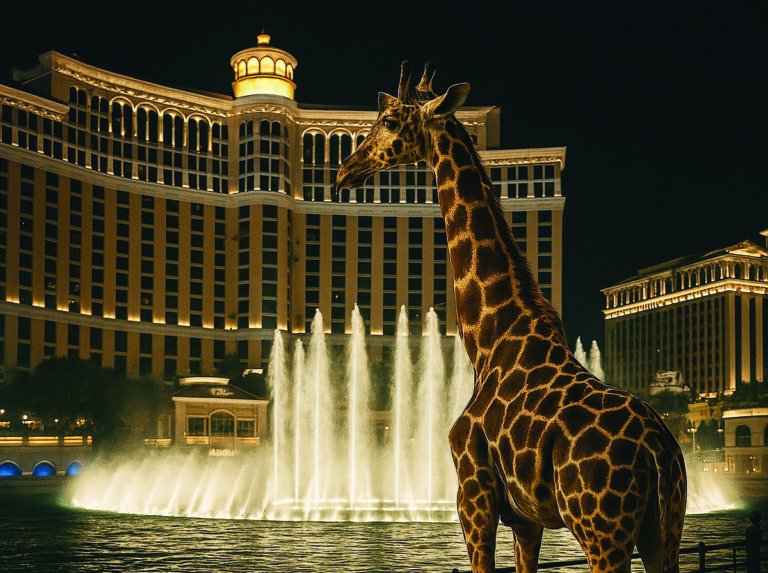Las Vegas Zoo Proposal: A Vision for Community Engagement and Education
Since their marriage in 1984, Steve and Caroline Lake have traveled extensively, visiting over 500 universities, all U.S. state capitals, major league ballparks, numerous city libraries, and 35 zoos nationwide. Now, they are setting their sights on bringing a much-needed zoo to Las Vegas.
The Need for a Zoo in Las Vegas
A Las Vegas resident since 1970, with a brief period living in Phoenix, Steve Lake was surprised to learn that Las Vegas is the largest city in the United States without a zoological park. Over the past three months, Lake has dedicated himself to researching and advocating for the establishment of a zoo, believing it would serve as both a notable regional attraction and an impactful educational resource.
“People always say … to me, none of these things really constitute a zoo. They’re all bits and pieces of this animal you could see or that animal, but hardly a zoo,” Lake stated. He argues that a zoo could bring joy to many local children and enhance community engagement.
Proposed Features of the Zoo
Lake envisions a zoo spanning 25 acres, featuring animals that can tolerate the extreme summer heat of the region. Instead of traditional large animals like elephants or polar bears, he is considering species such as giraffes, African lions, and ostriches, which are adaptable to desert environments similar to Southern Nevada.
Current Animal Attractions in Las Vegas
While Las Vegas offers some animal experiences, such as the Shark Reef Aquarium at Mandalay Bay and a flamingo habitat at the Flamingo resort, there are limited options for animal encounters beyond the famous Strip. Visitors can enjoy observing native species at the Springs Preserve and majestic lions at the Lion Habitat Ranch in Henderson. For those willing to travel, the Phoenix Zoo and the renowned San Diego Zoo are within a few hours’ drive.
Community Engagement and Education
During a recent visit to the Springs Preserve, Lake noted the engagement of young students from the Clark County School District as they interacted with wildlife exhibits. This observation solidified his belief that a comprehensive zoo would provide essential educational opportunities, fostering a deeper appreciation for wildlife and conservation efforts among local families and children.
Historical Attempts at a Zoo
Past efforts to establish a zoo in Las Vegas have faced significant challenges. In the early 2000s, a small zoological facility operated briefly but garnered negative attention for its poor conditions and animal welfare issues. This facility, the Southern Nevada Zoological Botanical Park, eventually closed in 2013 following numerous violations and public discontent.
In 2021, illusionist Jay Owenhouse proposed a unique tiger sanctuary near the Strip which faced intense public and official opposition, leading to its withdrawal. Concerns centered around the animal welfare implications and the impact of the facility’s location.
Learning from Regional Examples
The idea for a new zoo could draw inspiration from successful models in Arizona, such as the Reid Park Zoo in Tucson. This accredited facility receives over 500,000 visitors each year and emphasizes educational programs for students and conservation initiatives. Nancy Kluge, CEO of Reid Park Zoo, highlighted the importance of public engagement in wildlife conservation efforts.
Moving Forward
The pathway to establishing a zoo in Southern Nevada is complicated. Potential developers would need to navigate land use applications and secure numerous permits. Local regulations on exotic animal ownership are stringent, requiring accreditation from recognized organizations for public display.
Despite obstacles, Lake is optimistic about his proposal and is seeking support from community members and local officials to turn his vision into reality. “I think we have to work within our means… If anything, I think a zoo would be complementary,” he expressed, hopeful for broader community involvement in the initiative.
For more information and updates, please contact [email protected] or call 702-948-7854.


